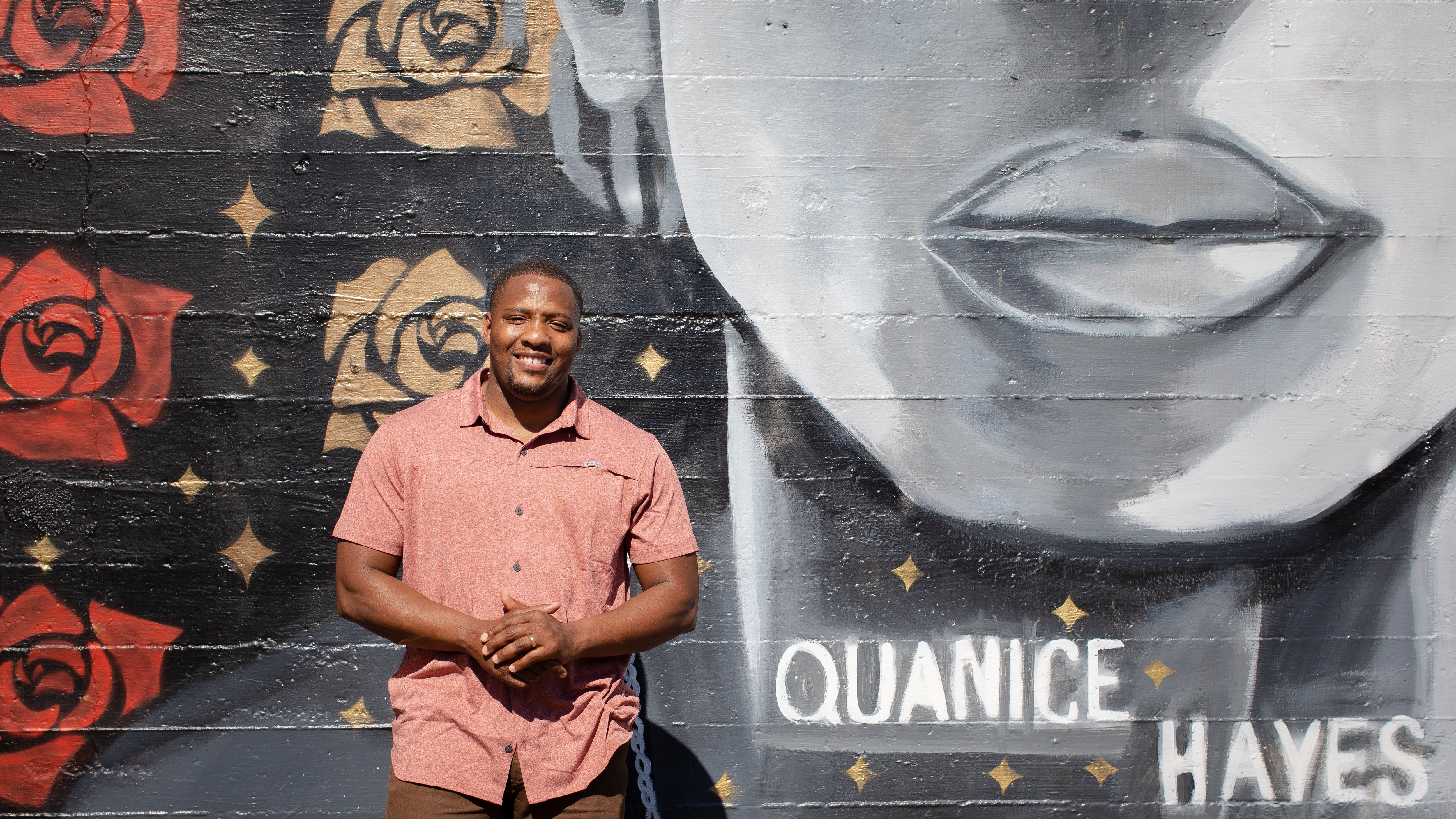The latest round of Portland City Council hopefuls shows the breadth of the candidate pool, ranging from the founder of a music nonprofit to a bicycle cop patrolling downtown. But perhaps the most noteworthy office-seeker to declare his candidacy recently is contractor and activist Terrence Hayes, the cousin of a teenager killed by Portland police officers.
Hayes, who is running for a seat in District 1 representing East Portland, is the cousin of Quanice Hayes, a 17-year-old Portlander who in 2017 was killed by a police officer after being identified as a suspect in several incidents, including a robbery, that took place earlier in the night. Quanice Hayes was shot three times by Officer Andrew Hearst, who was later ruled to have been justified in his use of force.
Terrence Hayes tells WW his bid for office has been informed by years of activism, but Quanice Hayes’ death “confirmed to me the need for someone in that space within the City Council and confirmed my convictions in being the one to occupy the seat.”
Terrence Hayes says he’s running to make East Portland a safer and more economically prosperous place.
“Too often, stakeholders in my district have been left out of the conversation about where resources go and what programs they fund, all while experiencing the most severe impacts of the humanitarian crisis on our streets,” Hayes tells WW. “I am running to change this and represent East Portland and the urgent concerns of those living there.”
Hayes sits on a number of boards related to criminal and racial justice. He chairs the city of Portland’s Focus Intervention Task Force Community Oversight Group, which works with the Portland Police Bureau to lower gun violence and increase understanding between communities of color and police officers. He also sits on two commissions convened by the governor’s office, the Criminal Justice Commission and the Racial Justice Council.
Hayes also served as secretary and a board member of the Portland Freedom Fund, a nonprofit that raised funds to pay bail for BIPOC defendants and gained steam in the wake of Floyd’s 2020 murder. (That nonprofit came under fire in 2022 after it posted bail for a man who later would kill the mother of his children.)
Hayes says he can foster trust between law enforcement and communities of color—a trust that fractured even further after the 2020 murder of George Floyd.
“My community is in desperate need of steady, thoughtful, community oriented policing,” Hayes says. “We can’t have that unless we give our police an opportunity to be successful. I’ve got a deep understanding of what our community needs from our police, and I want to be a bridge builder between our law enforcement and these neighborhoods.”
So far, 39 City Council hopefuls have signaled their intent to run for one of the 12 available seats.
Among the recent hopefuls are Eli Arnold, a Portland police officer who patrols downtown by bike and is vying for a seat in District 4; Laura Streib, who founded the music education nonprofit Vibe of Portland in 2007, formerly served as chair of the Arts Education and Access Fund Committee, and is seeking a seat in District 2; and Rex Burkholder, who served on the Metro Council for 12 years in the early 2000s. A scientist, researcher and consultant, Burkholder is seeking a seat in District 3.
A list of all candidates that have given notice to the city that they intend to run for office can be found here.
Correction: A previous version of this story incorrectly stated that Hayes co-founded the Freedom Fund. That’s incorrect; Hayes served as the secretary and board member. WW regrets the error.
